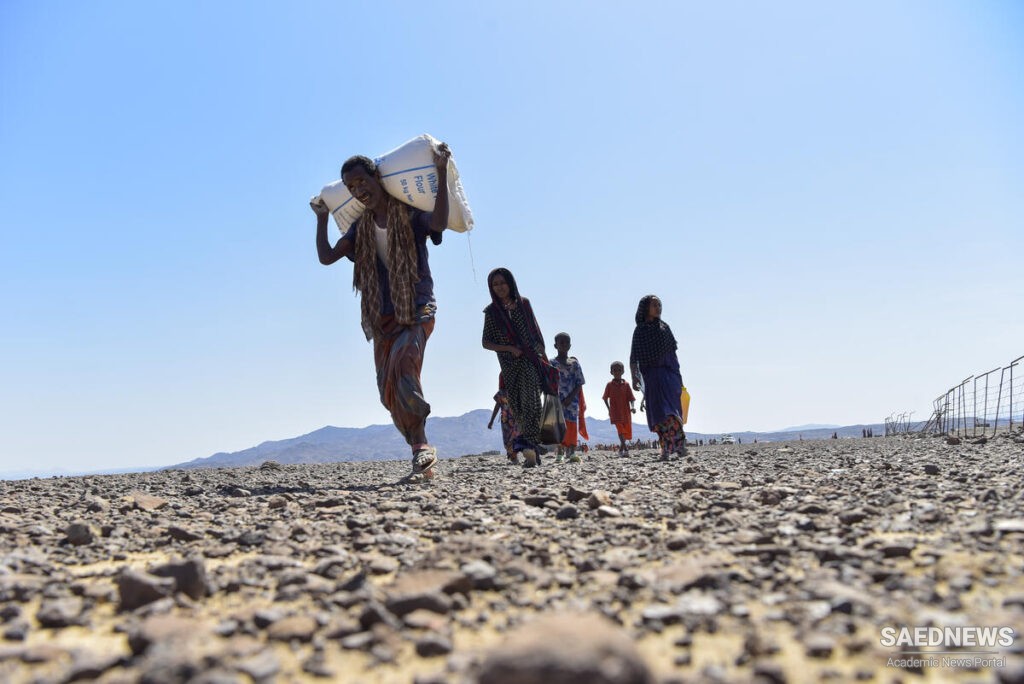Clearing the Red Sea in a single bound, it entered Yemen. By 2008 it had hurdled the Arabian Gulf, had invaded Iran, and was poised, like an angel of death, on the borders of Pakistan and India. Today many people have still not heard of Ug99. Yet it has the potential to kill more people than bird flu or AIDS, inflicting vast disruption on the world economy— and a pandemic may already be unstoppable.
Ug99 is a rust, a brownish fungus that attacks cereal plants. But it is a strain of rust more deadly to humankind’s staple food, wheat, than anything yet seen. Potentially wiping out entire crops, researchers have established that as many as 85 percent of the world’s wheat varieties may be susceptible to it. People have forgotten how devastating such events can be: the last major outbreak of stem rust occurred in North America in the early 1950s, when another, less deadly, strain devoured two- fifths of the continent’s spring wheat crop. But that was long before the world population grew so large, transportation so pervasive, or economies so interwoven. Ug99 is— at least potentially— the Irish potato blight of the 1850s on a global scale, with the capacity to bring famine and death to tens of millions.
No one knows where Ug99 came from. It was first discovered in a plant nursery in Uganda in 1999, hence the name, but scientists suspect that it originated somewhere in southern Africa when a conventional rust underwent a tiny mutation that suddenly enabled it to attack threequarters of the world’s wheat crops. It tore loose in Kenya, where it destroyed up to 80 percent of the wheat harvest because most of that country’s wheat plants had only a single gene protecting them against rust. Indeed, the world’s wheat crops are mainly protected by just three antirust genes— and Ug99 has broken through against all of them. “This is a global threat,” Masa Iwanaga, then the director general of the International Wheat and Maize Center (CIMMYT) told a world scientific crisis meeting. “The risk of a stem rust epidemic in wheat in Africa, Asia and the Americas is real, and must be averted before untold damage and human suffering is caused,” said Mahmoud Solh, the director general of the International Center for Agricultural Research in the Dry Areas.
Scientists were pulled off their vital work of trying to feed the world in the coming generation and refocused on trying to dam this sudden and disastrous breach that had opened in the security of the global food supply. An international scientific task force was formed, headquartered at Cornell University and funded by the Bill and Melinda Gates Foundation, among others, as researchers rummaged through the ge ne tic profiles of grain crops ancient and modern to see if they could pinpoint genes able to protect against the new blight and then breed them, three or more at a time, into the world’s wheat varieties. It is a colossal undertaking and, even if the genes are quickly found and prove to be protective against Ug99, it will be years before even half the world’s wheat is safe. Meantime, humanity teeters on the brink of a bread catastrophe.
In a sense, Ug99 was a disaster waiting to happen. As flu regularly reminds us, diseases mutate all the time— but become major killers only when the ground is fertile and society unprepared. For almost a generation, the attitudes of governments worldwide have ensured that the world is becoming less well armed than it could be against this and other aspects of the coming famine. By assuming that the food problem was solved, by eroding support for the global effort to feed ourselves, by trusting to the private sector to do it all for us, governments have prepared the ground for the food shortages of the mid- twenty- first century. Some may feel that this criticism of governments for their complacency and lack of foresight is unfair— but leaders who do not ensure that the people are fed fail the first test of leadership.


 Shawarma the Mediterranean Sandwich
Shawarma the Mediterranean Sandwich














































